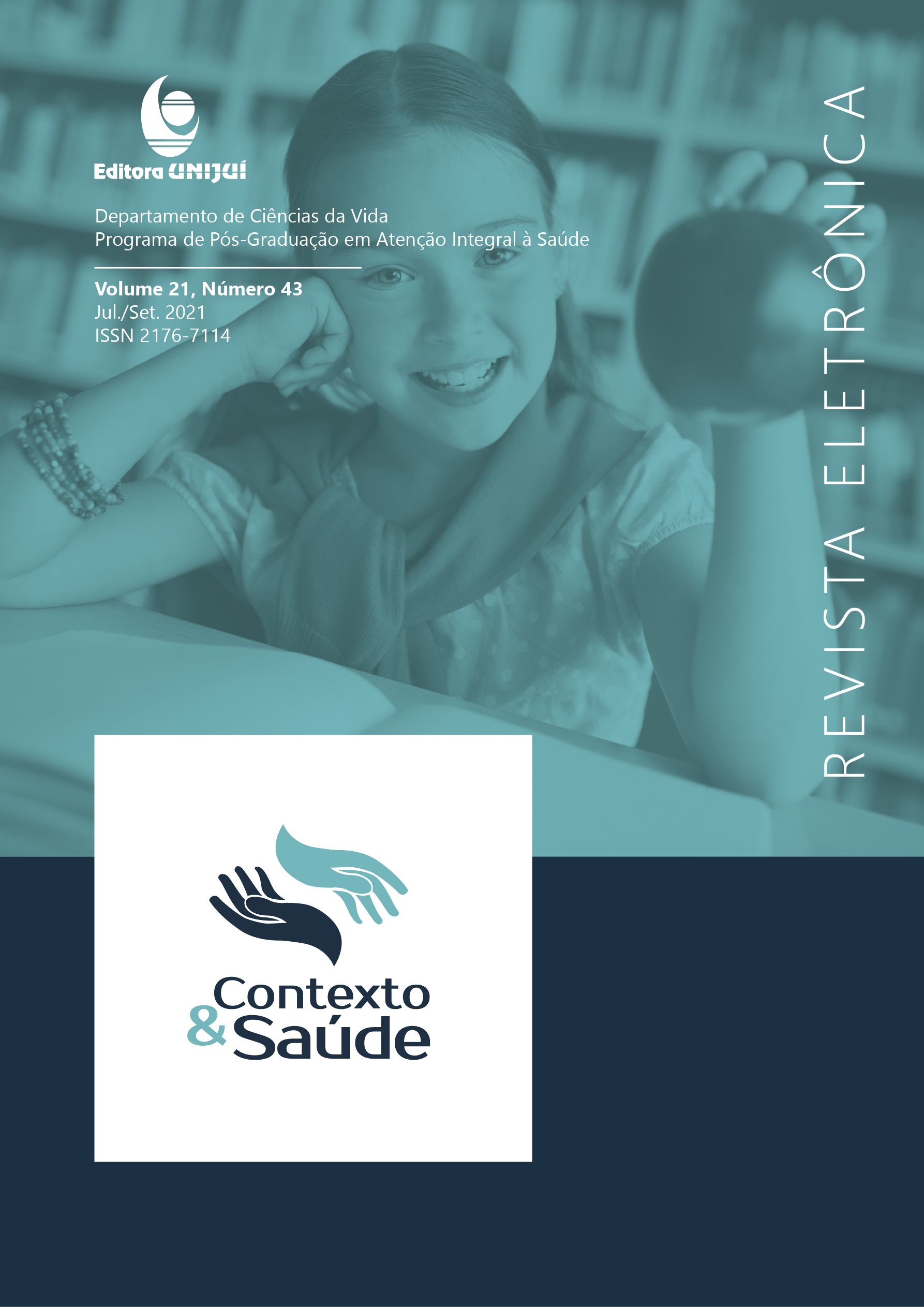ACURÁCIA DO QUESTIONÁRIO DE BERLIN PARA IDENTIFICAR APNEIA OBSTRUTIVA DO SONO NA INSUFICIÊNCIA CARDÍACA CRÔNICA
ACCURACY OF THE BERLIN QUESTIONNAIRE TO IDENTIFY OBSTRUCTIVE SLEEP APNEA IN CHRONIC HEART FAILURE
DOI:
https://doi.org/10.21527/2176-7114.2021.43.11329Keywords:
Sleep disorders, Cardiovascular diseases, PolysomnographyAbstract
The objective of this study was to verify the accuracy of the Berlin Questionnaire (BQ) and the Epworth Sleepiness Scale (ESE) to identify obstructive sleep apnea (OSA) in individuals with Chronic Heart Failure (CHF). Nineteen individuals with CHF (57.2 ± 6.6 years old, 12 men) were submitted to portable polysomnography. The BQ was used to investigate the risk of OSA and the ESE was used to assess excessive daytime sleepiness. Thirteen patients were diagnosed with OSA (IAH≥15/hs) by portable polysomnography, but only three of them had excessive daytime sleepiness. Eleven patients were classified at high risk for OSA by the BQ. This questionnaire shows a sensitivity, specificity, positive and negative predictive values of 38.4%, 50%, 62.5 and 27.2%, respectively. ESE shows a sensitivity of 25%, a specificity of 100%, a positive predictive values of 100% and negative predictive values of 43.7%. The area under the ROC curve for QB was 0.44 and for ESE was 0.38. Both QB and ESE showed insufficient accuracy to identify OSA in individuals with CHF. In conclusion, BQ and ESE show insufficient accuracy to identify OSA in individuals with CHF. New questionnaires could be developed to screen OSA in patients with heart failure.
Downloads
Published
How to Cite
Issue
Section
License

This work is licensed under a Creative Commons Attribution 4.0 International License.
By publishing in Revista Contexto & Saúde, authors agree to the following terms:
The works are licensed under the Creative Commons Atribuição 4.0 Internacional (CC BY 4.0) license, which allows:
Share — to copy and redistribute the material in any medium or format;
Adapt — to remix, transform, and build upon the material for any purpose, including commercial.
These permissions are irrevocable, provided that the following terms are respected:
Attribution — authors must be properly credited, with a link to the license and indication of any changes made.
No additional restrictions — no legal or technological measures may be applied that restrict the use permitted by the license.
Notes:
The license does not apply to elements in the public domain or covered by legal exceptions.
The license does not grant all rights necessary for specific uses (e.g., image rights, privacy, or moral rights).
The journal is not responsible for opinions expressed in the articles, which are the sole responsibility of the authors. The Editor, with the support of the Editorial Board, reserves the right to suggest or request modifications when necessary.
Only original scientific articles presenting research results of interest that have not been published or simultaneously submitted to another journal with the same objective will be accepted.
Mentions of trademarks or specific products are intended solely for identification purposes, without any promotional association by the authors or the journal.
License Agreement (for articles published from September 2025): Authors retain copyright over their article and grant Revista Contexto & Saúde the right of first publication.

